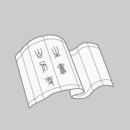
【预订】So Much I Want to Tell You
书籍内容简介可联系客服查阅,查书找书开票同样可以联系客服
¥ 118 ¥ 118 九五品
库存2件
作者Anna Akana
出版社Random House Publishing Group
ISBN9780399594939
出版时间2017-06
装帧平装
定价118元
货号YB-88896
上书时间2024-08-20
- 最新上架
商品详情
- 品相描述:九五品
- 商品描述
-
商品简介
From Internet sensation Anna Akana comes a candid and poignant collection of essays about love, loss, and chasing adulthood.
In 2007, Anna Akana lost her teen sister, Kristina, to suicide. In the months that followed, she realized that the one thing helping her process her grief and begin to heal was comedy. So she began making YouTube videos as a form of creative expression and as a way to connect with others. Ten years later, Anna has more than a million subscribers who watch her smart, honest vlogs on her YouTube channel. Her most popular videos, including “How to Put On Your Face” and “Why Girls Should Ask Guys Out,” are comical and provocative, but they all share a deeper message: Your worth is determined by you and you alone. You must learn to love yourself.
In So Much I Want to Tell You, Anna opens up about her own struggles with poor self-esteem and reveals both the highs and lows of coming-of-age. She offers fresh, funny, hard-won advice for young women on everything from self-care to money to sex, and she is refreshingly straightforward about the realities of dating, female friendship, and the hustle required to make your dreams come true. This is Anna’s story, but, as she says, it belongs just as much to Kristina and to every other girl who must learn that growing up can be hard to do. Witty and real, Anna breaks things down in a way only a big sister can.
Praise for So Much I Want to Tell You
“This book is filled with the kind of honesty, vulnerability, and determination that makes Anna such a captivating person. One warning: You’ll want to hug her a lot while reading this.”—Natalie Tran, actress and comedian
“As a woman working in entertainment, Anna Akana is accustomed to feeling vulnerable. Which means that she’s used to being brave. This book is a tribute to the duality of bravery and fear as told through Anna’s experiences to date.”—Hannah Hart, New York Times bestselling author of Buffering: Unshared Tales of a Life Fully Loaded
“Frank advice on how to live a productive, happy life . . . written in tribute to a ‘fearless, talented, and bold’ sister.”—Kirkus Reviews
网络红人安娜·阿卡娜 (Anna Akana) 创作了一本关于爱情、失落和追逐成年的坦率而辛酸的散文集。
2007 年,安娜·阿卡娜 (Anna Akana) 自杀身亡,失去了她十几岁的妹妹克里斯蒂娜 (Kristina)。在接下来的几个月里,她意识到帮助她处理悲伤并开始治愈的一件事就是喜剧。因此,她开始制作 YouTube 视频,作为一种创意表达形式和与他人联系的方式。十年后,安娜拥有超过 100 万订阅者,他们在她的 YouTube 频道上观看她聪明、诚实的视频博客。她最受欢迎的视频包括“How to Put On Your Face”和“为什么女孩应该约男人出去”,这些故事既滑稽又具有挑衅性,但它们都传达了一个更深层次的信息:你的价值由你自己决定,而且只有你自己决定。你必须学会爱自己。
在我想告诉你很多事情中,安娜讲述了她自己与低自尊的斗争,并揭示了未来的高潮和低谷-年龄。她为年轻女性提供了新鲜、有趣、来之不易的建议,涉及从自我保健到金钱到性的各个方面,她以令人耳目一新的直白方式讲述了约会、女性友谊的现实,以及实现梦想所需的努力。这是安娜的故事,但是,正如她所说,这同样属于克里斯蒂娜和其他所有必须认识到成长是艰难的女孩。安娜机智而真实,她以只有大姐姐才能做到的方式分解事情。
赞扬我想告诉你很多东西
“这本书充满了安娜的诚实、脆弱和决心,正是这些使她成为一个如此迷人的人。一个警告:阅读本文时,您会非常想拥抱她。”—Natalie Tran,女演员和喜剧演员
“作为一名从事娱乐业的女性,安娜·阿卡纳 (Anna Akana)习惯了脆弱的感觉。这意味着她已经习惯了勇敢。这本书是对安娜迄今为止的经历所讲述的勇敢和恐惧的二元性的致敬。”—汉娜·哈特,纽约时报畅销书缓冲的作者:未分享的充满生活的故事
“关于如何过上富有成效、幸福的生活的坦率建议。 。 。谨以此文向一位“无所畏惧、才华横溢、大胆”的英雄致敬。妹妹。”—柯克斯评论
作者简介
Anna Akana is an actress, comedian, and filmmaker most known for her online weekly show with 1.6 million subscribers. She’s been in the feature films Ant-Man and Hello, My Name Is Doris, and can be seen on Comedy Central’s Corporate. She lives in Los Angeles.
精彩内容
Find Your Voice
Most successful people will tell you to follow your dreams. I’d say fall into them, because I fell into mine.
After my sister died, I spent two years abusing drugs and alcohol and engaging in all that escapist won’t-deal-with-my-feelings harmful stuff. LSD, MDMA, all the acronyms. But one day as I sat stoned in my room watching TV, a Comedy Central special came on. Margaret Cho was doing a routine I’d never seen before. And for the first time in a very long time, I laughed. But even better, I forgot. I forgot myself. I forgot my pain. I forgot that Kris was dead.
Seeing that show sparked something inside of me. After a couple years of feeling dead inside, I experienced joy, hope, excitement. I became obsessed with the idea of standing on a stage and making people laugh. Seeing Margaret, an Asian woman, perform stand-up gave me the confidence that I could do it too. So I took out a notebook and began to write. I wrote down every funny thing that’d ever happened to me, every funny thing I could remember saying, stories from my childhood and teenage years, thoughts and musings and random observations. I compiled a set list and performed it in front of my old DSLR camera over and over and over and over again. When I told a co-worker what I’d been doing, he said he knew a bar owner who ran a stand-up show. He asked if I wanted to get up onstage.
Uh, hell yes.
My first stand-up set was eight minutes long. Looking back, I’m always amazed. Who the hell decides to give a first-timer an eight-minute set? That’s insane. Maybe if I’d realized then, I would have been more nervous. But I wasn’t nervous; I was excited. All my friends came. My mom and dad and brother, Will, came too. Make no mistake: my jokes were terrible. They were stereotypical and cheap. I compared my first time seeing an erection to a human witnessing Godzilla. I fully acted this out with no shame or self-consciousness. But, hey, that’s to be expected when you are first starting out. All that mattered was how I felt telling those terrible jokes. I liked being up onstage, and I wanted my writing to get better. And I loved loved loved the adrenaline rush that surged through me when I got a laugh.
After that night, I was hooked. I started commuting to Los Angeles from Temecula at night to do shows. It was a three-hundred-mile round-trip, but I’d practice my set in the car, sign up for the open-mic lottery at venues like the Comedy Store or the Improv, and wait to see if I got picked to go up. I did a lot of weird shows back then: shows in front of troops in their rec rooms on base, shows in coffee shops, shows in loud bars, even burlesque shows. I performed wherever I could, whether it was at an open mic, a bringer show (where you’re required to bring your own paying audience in order to get onstage), or a show that someone had scraped together in the corner of a restaurant. If the show was at a bar or a club, I’d have to wait outside until it was time for my set because I was only nineteen. I’d wait until it was my turn to perform, and then a waitress or a busser or whoever would come out and escort me to the stage, let me do my set, and then kick me out.
My father and I even camped out on the sidewalk in front of the Hollywood Improv so I could audition for Last Comic Standing. We brought a giant pink princess tent because we thought it was hilarious. We stayed overnight, talking to the other comedians in line as I tried to choose which jokes I should tell. I didn’t make it, of course. I was still so green. I remember the look of disdain on Natasha Leggero’s face when she told me that I should keep working on it. I’m sure I gave her a completely oblivious look of hope and eagerness and Yasss, Queen, I will.
But just as I started to really find my footing, just as my jokes began to take shape, just when the lights became easier to look beyond . . . I started to hate doing stand-up.
I honestly didn’t get it. I had loved stand-up when I started. But then that feeling began to wane, and soon anxiety crept in. I became irrationally afraid of the stage and the audience, despite the fact that I was no longer bombing the way I had when I first started out. I wasn’t necessarily great, but I definitely wasn’t terrible. I was fine. Forgettable, maybe, but cute and weird. I always got at least a few laughs. So why all the crazy anxiety and dread? Why now?
If I had a show, I would obsess over how terrible it would go, and more often than not, I would cancel it altogether so that I could finally eat and sleep and breathe. I had only been doing stand-up for a year or so at this point, and I had no idea whether what I was experiencing was normal or not.
Now, thankfully, I know that it is. Some comedians will give it up, come back, give it up, come back. It’s a hard craft. Even now, though I do stand-up, I don’t feel like I am a stand-up comic. Stand-up is a lifestyle. The greats are, I believe, born to do it. I don’t feel like I could ever claim that. That’s something else.
My anxiety got so bad that I stopped working on my stand-up altogether. I thought about it nonstop, but I refused to get up onstage. I’d go to open-mic shows, write my name down, then quickly cross it off the list and watch the show instead. Sometimes I’d write my name down, then halfway through the open mic I would leave and drive the 150 miles back home.
I tried telling myself that it would take time. I just needed more practice. But I couldn’t do it. I couldn’t eat, I couldn’t sleep, I was having stomach problems, and my hair was coming out in chunks. Not even my hypnotherapist’s positive affirmations could get me back onstage. (Yes, I had a hypnotherapist. It’s so weird to actually write that sentence. He gave me free sessions because he dealt specifically with survivors of suicide.)
Looking back now, I can see that my anxiety stemmed from my desire to sabotage
相关推荐
-

【预订】So Much I Want to Tell You
九五品广州
¥ 118.00
-

【预订】So Much I Want to Tell You
九五品济南
¥ 118.00
-

【预订】So Much I Want to Tell You
九五品广州
¥ 118.00
-

【预订】So Much I Want to Tell You
九五品广州
¥ 118.00
-

I Wonder Why Caterpillars Eat So Much
八五品长沙
¥ 36.27
-

I wander why Caterpillars Eat So Much
九品北京
¥ 19.00
-

I Wonder Why Caterpillars Eat So Much
九品北京
¥ 10.00
-

I wander why Caterpillars Eat So Much
九品运城
¥ 55.00
-

I Wonder Why Caterpillars Eat So Much
九品北京
¥ 15.00
-

So Much Closer
全新上海
¥ 18.00
— 没有更多了 —












以下为对购买帮助不大的评价